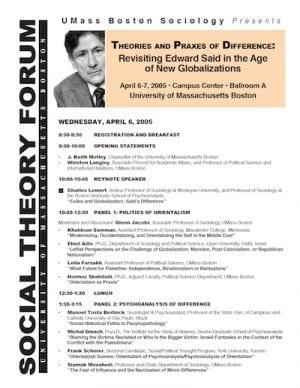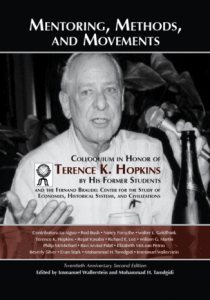Proceedings Journal Article — Oil Revenues and Problematic Development: The Case of Algeria — by Fouad Bouguetta & Sally Bould
$15.00
Algeria was a model of development during the 1970s with prosperity assured by oil revenues. Economic and political development, however, became blocked. Edward Said’s concept of orientalism provides a basis for understanding the blockage.
Description
Abstract
Algeria was a model of development during the 1970s with prosperity assured by oil revenues. Economic and political development, however, became blocked. Edward Said’s concept of orientalism provides a basis for understanding the blockage. The cultural, organizational, economic and political sub-systems each became bifurcated into “rational-secular modernity” and “orientalism.” Initially, high oil revenues were used to satisfy all actors and concealed the underlying split. But the decline in oil revenues has revealed a system without cohesion, an economy without production, and an ineffective but gigantic bureaucracy. This blockage cannot be understood as a clash between the west and Islam. In criticizingthe “clash of civilizations,” Said wants to emphasize the parallels between the west and the east. These parallels exist internal to Algerian society.
Recommended Citation
Bouguetta, Fouad, and Sally Bould. 2005. “Oil Revenues and Problematic Development: The Case of Algeria.” Pp. 217-230 in Theories and Praxes of Difference: Revisiting Edward Said in the Age of New Globalizations: Proceedings of the Second Annual Social Theory Forum, April 6-7, 2005 (Discourse of Sociological Practice, Vol. 7, Issues 1&2, Fall/Spring 2005). Double-Issue Guest Editor: Mohammad H. Tamdgidi. Sociology Department, UMass Boston.
Read the Above Publication Online
To read the above publication online, you need to be logged in as an OKCIR Library member with a valid access. In that case just click on the large PDF icon below to access the publication. Make sure you refresh your browser page after logging in.






